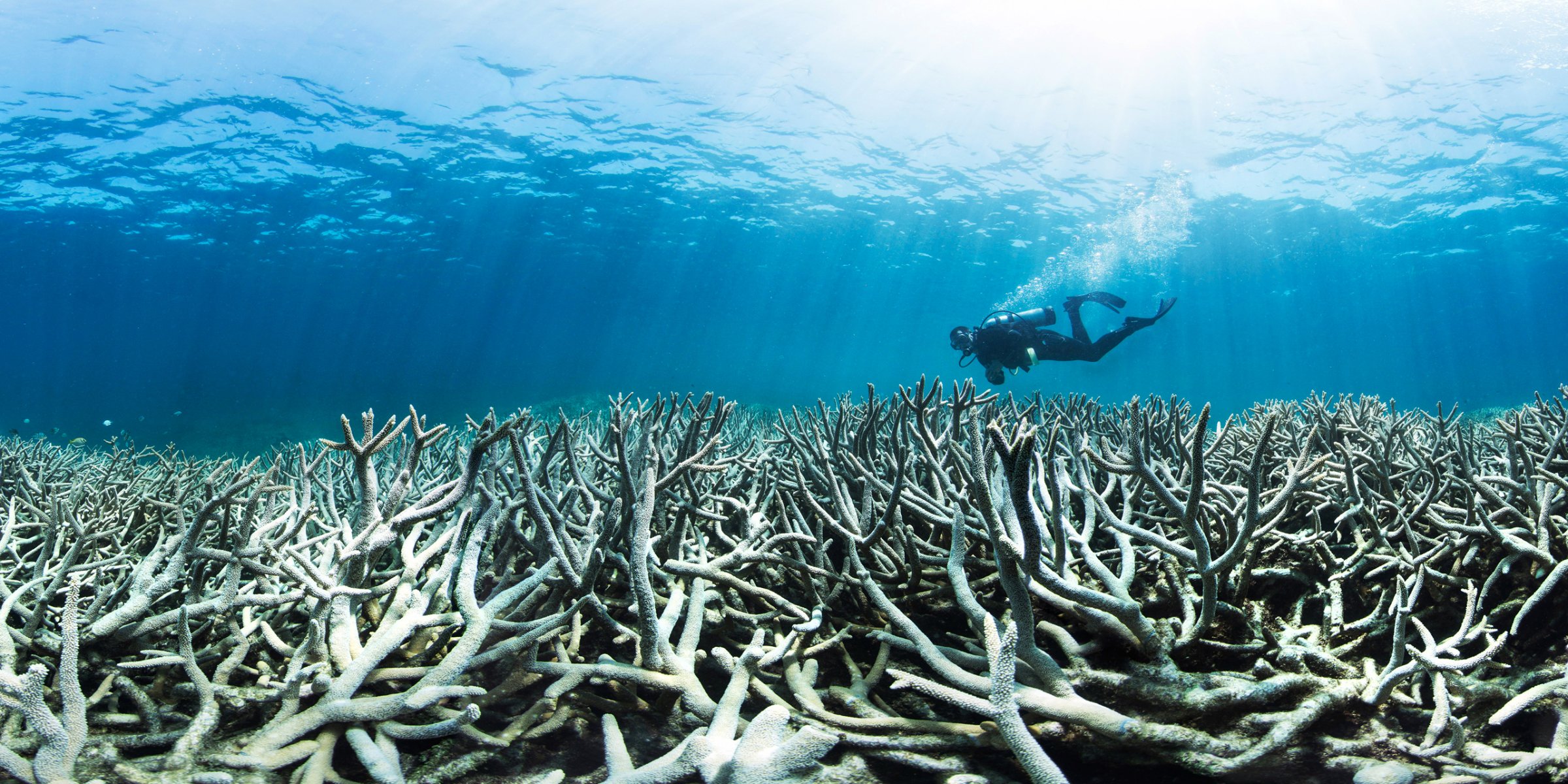
The Great Barrier Reef is more than worthy of its name. Coral of all shapes, sizes and colors cover more than 130,000 sq. mi. off the coast of Australia, making it the world’s largest reef system and supporting an astounding variety of marine life.
But today the Great Barrier Reef is dying. The temporary warming effect of a major El Niño event–combined with ongoing climate change–has heated the waters around the reef to nearly unprecedented levels. That warming has in turn driven a mass bleaching that has sucked the color–and the life–out of the coral. And the Great Barrier Reef isn’t alone. “This is the longest bleaching event ever recorded,” says David Kline, a Scripps Institution of Oceanography scientist. “It’s truly global, and it’s looking very severe.”
Bleaching occurs when ocean disruptions–warm water, pollution, algae overgrowth–drive away the symbiotic organisms that live on the coral and give it color. Within weeks, the reef could die, leaving behind a forest of lifeless, bone white coral. Scientists believe the bleaching now under way may kill more than 15% of the world’s coral.
It’s not just a matter of aquatic aesthetics. Reefs act as natural barriers that protect coastal communities from storms and flooding. Marine life depends on coral reefs as habitats, while coastal towns depend on them as tourist draws.
But a bigger worry may be what the bleaching suggests about future climate change. The rapid death of coral reefs demonstrates that climate change is irreversibly affecting the world right now, even as policymakers treat warming as something to be dealt with in the future. “Climate change may be slow-creeping sometimes, but other times it takes great leaps forward,” says Steve Palumbi, an ocean scientist at Stanford University. “This is one of those leaps.”
Local solutions–like reducing fishing and cleaning up pollution–can help slow reef loss, but scientists say a global problem requires a global solution. Nearly 200 countries agreed last year to work to keep global temperatures from rising more than 3.6°F by 2100, but that goal will be tough to reach. And if governments fail, coral reefs will be only the first victims.
More Must-Reads from TIME
- Donald Trump Is TIME's 2024 Person of the Year
- Why We Chose Trump as Person of the Year
- Is Intermittent Fasting Good or Bad for You?
- The 100 Must-Read Books of 2024
- The 20 Best Christmas TV Episodes
- Column: If Optimism Feels Ridiculous Now, Try Hope
- The Future of Climate Action Is Trade Policy
- Merle Bombardieri Is Helping People Make the Baby Decision
Write to Justin Worland at justin.worland@time.com